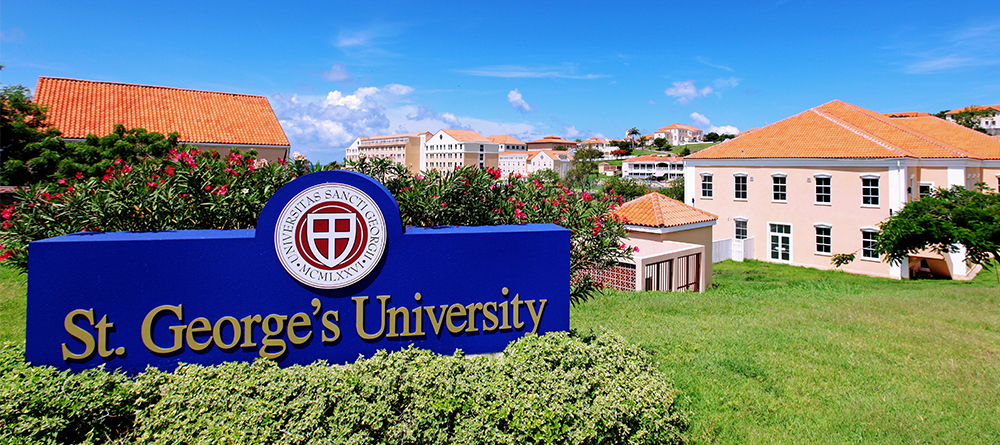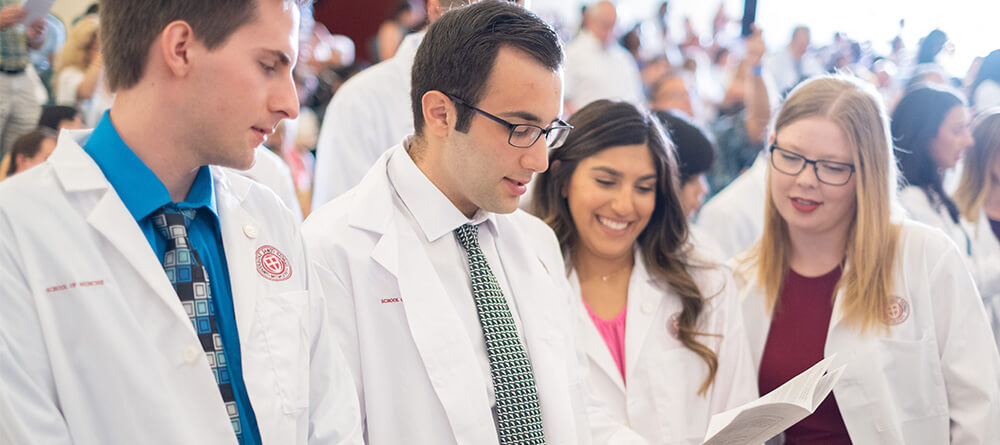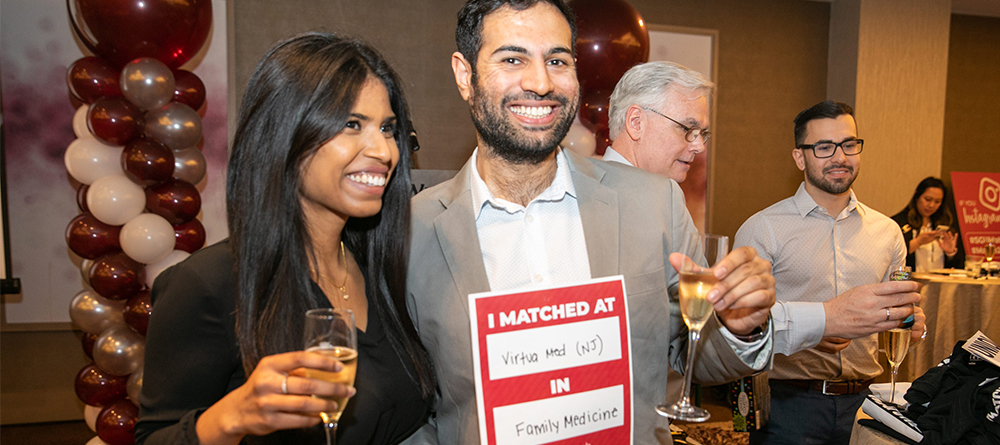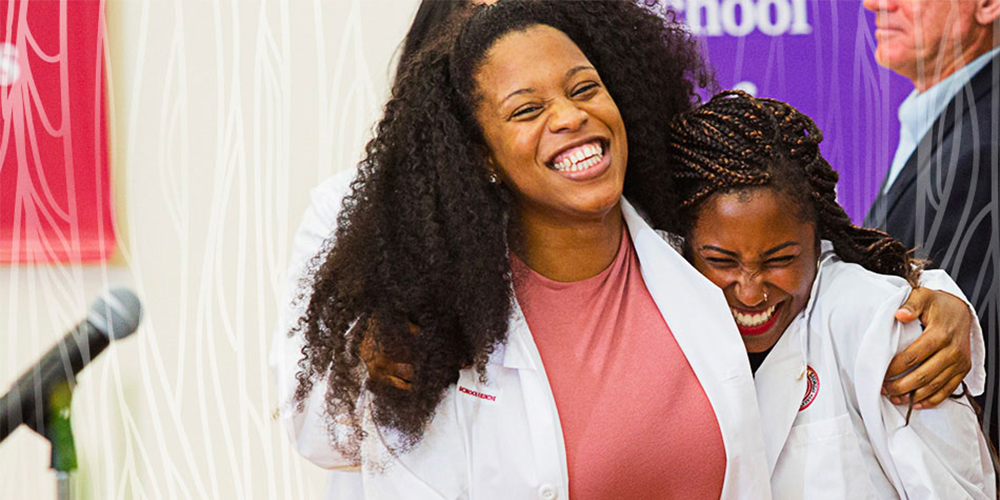Many of the misconceptions about Caribbean medical schools are based on little more than a few opinions. You’ll soon see that you can actually attend a quality MD program located in this island region.
“I know many foreign-trained physicians who are excellent doctors,” says Dr. Barbara Bergin, a board-certified orthopedic surgeon at Texas Orthopedics — Sports & Rehabilitation Associates.
5 false assumptions about attending medical school in the Caribbean
There are a lot of myths out there about Caribbean medical schools. But if you take the time to do some research, you’ll find it can be an ideal route for aspiring physicians.
Keep reading to learn the truth about going to medical school in the Caribbean.
Myth #1: Caribbean medical schools don’t allow you to specialize
“No matter which medical school you are considering, whether it’s in the US or elsewhere, you’ll find the vast majority of students go into primary care because there are more residency slots,” explains Colin Dowe, associate dean of admissions at St. George’s University (SGU). But the assumption that this is the only option for students at Caribbean medical schools is just not true.
In fact, SGU graduates matched into 20 different specialties in 2022.1 While most secured residencies in primary care specialties such as internal medicine and family medicine, students also matched into pediatrics, anesthesiology, surgery, and other competitive specialties.
Read more: SGU Grads Excelling in the Most Competitive Specialties
Consider Dr. Njambi Mathenge, a cardiology fellow at Massachusetts General Hospital, which is a Harvard Medical School affiliate. A proud SGU alumna, Dr. Mathenge is an example of how a Caribbean medical school can provide an opportunity for students to create their own success.
Myth #2: Caribbean medical school classes are too big for you to learn anything
It’s not unusual for a medical school in the Caribbean to have more than 500 students per class. This sounds a little worrisome when you hear graduates talk about the importance of individual attention. But getting enough instruction is as much about faculty size and the way the program is designed as it is the number of students.
“You are lectured to in a large classroom—that’s true,” Dowe explains. “But when you are actually learning—in the labs, or in small groups—you are oftentimes in groups of eight.” Since this type of small group work will vary from one program to the next, you should ask admissions advisors about how material is presented. You’d also be wise to look into each medical school’s track record, including the support services that are available to help you achieve academic success.
Dowe adds that a true measure of the effectiveness of a particular learning environment is the students’ academic performance. A school’s performance on the United States Medical Licensing Exam (USMLE) Step 1 and the Medical Council of Canada Qualifying Examination (MCCQE) Part 1 are universal gauges for this. “I think the proof is in the pudding,” Dowe says.
SGU students who took the USMLE Step 1 for the first time had a 92 percent pass rate over the last three years.2

Myth #3: Caribbean medical school will accept anyone
Some Caribbean medical schools have rightly earned the reputation as being too accommodating for unqualified applicants, but others are much more selective.
“We spend a whole lot of time doing a holistic appraisal of applicants,” Dowe explains.
“We spend a whole lot of time doing a holistic appraisal of applicants.”
While academic metrics like MCAT scores and GPA are important, these numbers alone can’t determine if someone has what it takes to be a successful doctor. SGU also evaluates things like life experiences, dedication to the field, and personal attributes.
Myth #4: Caribbean medicals schools will take your money and abandon you
Medical school is an undeniably large investment, regardless of the institution. The Association of American Medical Colleges (AAMC) reports the average cost of attending public institutions for the 2021-2022 school year was $38,947 for in-state students and $62,505 for out-of-state students. Caribbean schools tend to be near the higher end of this spectrum, but also consider some prestigious US programs are already more than $90,000 per year.
You’ll want to look beyond the price tag as well. A majority of graduates who successfully attain residency and begin practicing medicine will be able to successfully pay off their loans. Dowe says a good way to see if graduates are flourishing or floundering is to examine loan default rates. You can find some of these results by searching for specific schools on the Federal Student Aid website.

What about feeling abandoned? It really depends on the school, so don’t be afraid to ask questions.
“As you explore, chat with the students about the level of support that’s provided on campus and get a sense of the utilization rate of those support services,” Dowe recommends.
Myth #5: You’ll never match for a residency if you go to a Caribbean medical school
The idea that you have to attend medical school in your home country in order to practice there is entirely false. The US is a perfect example. The American Medical Association (AMA) reports international medical graduates account for more than 25 percent of US physicians.
Generally speaking, it’s true that Caribbean medical school residency match rates skew lower than US schools. But rather than judging them collectively, you’ll want to evaluate each individual school you’re considering.
SGU, for example, has been the largest provider of doctors into first-year US residencies for the last eight years, securing more than 990 US residencies in 2022.3

Don’t overlook Caribbean medical schools
As long as you do your research to find the best Caribbean medical schools, you may be surprised to find that reputable programs have advantages over schools closer to home.
“You’ll have an amazing foreign cultural experience that you will never get if you do your training here [in the US] and then start your practice,” Dr. Bergin explains. “There will never be an opportunity like that again.”
SGU students enjoy the benefits of a thriving multicultural environment on the True Blue campus, offering all the amenities and facilities of a modern institution. To learn more about what else you can expect, check out “10 Things That Might Surprise You About the SGU School of Medicine.”
1Data as of July 2022.
2Average of 2019, 2020, 2021 scores. First-time pass rate is defined as the number of students passing USMLE Step 1 on their first attempt divided by the total number of students taking USMLE Step 1 for the first time. In order to be certified to take USMLE Step 1, students are required to pass all basic sciences courses.
3As the medical school graduating the largest number of students annually, SGU places the largest number of graduates into residency programs each year, based on internal SGU graduate and residency placement data as of May 2022.
* This article was originally published in February 2018. It’s since been updated to reflect more recent information.

